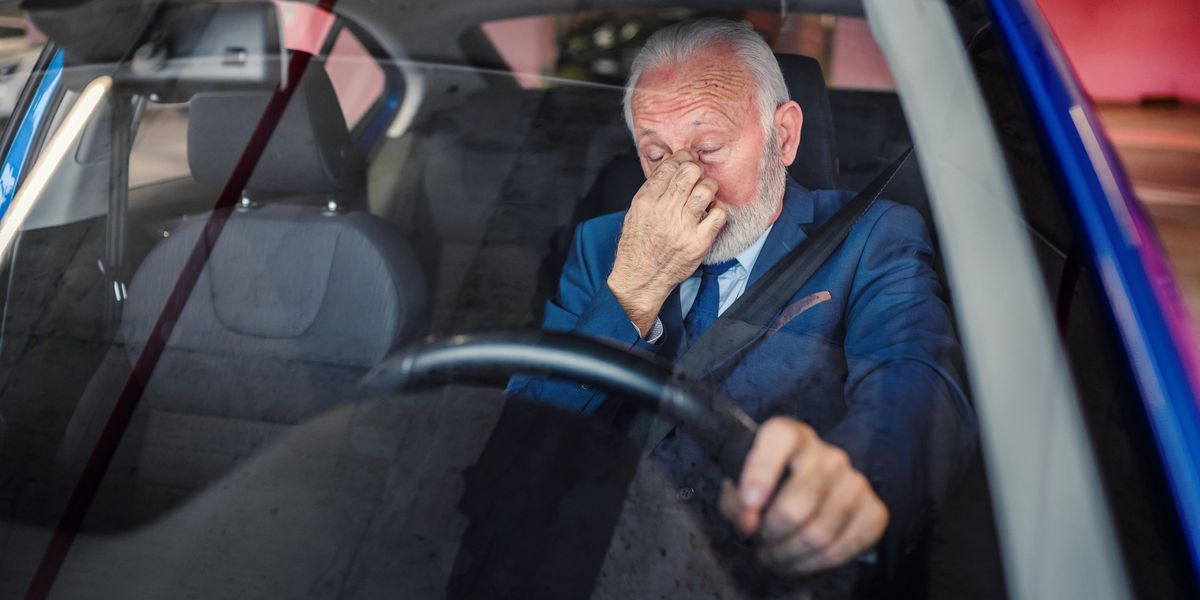Drivers who fail to report excessive sleepiness conditions to the DVLA could face fines of up to £1,000 and potential prosecution if involved in an accident.
The warning comes as motorists are required by law to inform the DVLA if they suffer from conditions causing excessive sleepiness, including moderate or severe obstructive sleep apnoea syndrome, narcolepsy, or cataplexy.
Those affected must not drive until they are free from excessive sleepiness or their symptoms are under control with proper treatment.
The alert is particularly timely during the Christmas period when festive exhaustion puts many drivers at increased risk.
Do you have a story you’d like to share? Get in touch by emailingmotoring@gbnews.uk
Drivers can be fined for not getting enough rest before travelling
GETTY
Drivers must inform the DVLA if they have confirmed moderate or severe obstructive sleep apnoea syndrome with excessive sleepiness.
Motorists can report their condition online or by filling in form SL1 for car and motorcycle licences. Bus, coach and lorry drivers must complete form SL1V and send it to the DVLA.
Doctors can advise if excessive sleepiness is likely to affect driving ability. The need for disclosure follows recent reports which found that sleeping less than seven hours doubles the risk of having a car crash.
Studies showed that drivers who get just five to six hours of sleep are twice as likely to crash compared to those getting the recommended eight hours.
But more alarmingly, one in three drivers have experienced microsleeping which involves falling asleep for up to 30 seconds while behind the wheel.
Road accident statistics have indicated that between 10 per cent and 20 per cent of crashes occur due to tired driving.
The risk is particularly concerning during the Christmas period when roads see a spike in accidents due to increased traffic volume and driver fatigue.
Cat Wiltshire from Online-Bedrooms.co.uk warned that fatigued driving risks increase significantly during the festive season.
She said: “While fatigued driving is a danger throughout the whole year, the risks are further increased during the Christmas season, as many people struggle with festive burnout.
“Many of us feel exhausted in the run-up to Christmas as it’s a high-intensity period filled with office parties, holiday gatherings, endless Christmas shopping trips and lots of travelling to ensure you’re spending time with all your loved ones.”
Experts are now advising drivers get enough sleep before embarking on long journeys, particularly during the Christmas period. Taking regular breaks is essential, with drivers urged to stop for at least 15 minutes every two hours.
Wiltshire added: “Even going to bed an hour or two earlier before a long car journey can make a big difference. Make sure to look out for signs of fatigue such as excessive yawning and heavy eyelids.”
LATEST DEVELOPMENTS:
Drivers have also been warned to be particularly cautious after consuming large Christmas meals, as eating can increase fatigue and drowsiness. Experts have recommended allowing food to settle for several hours after big holiday meals before getting behind the wheel.
“The roads are a lot busier around the holiday season which already increases the risk of collisions, and adding fatigue to the mix makes the situation far more dangerous,” warned Wiltshire.

